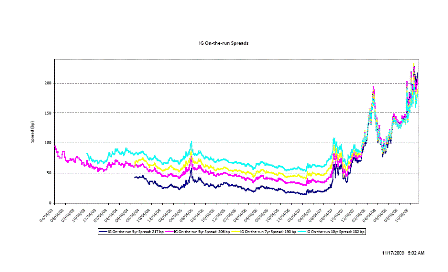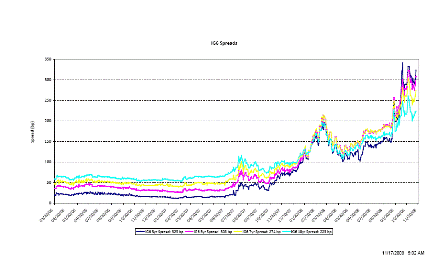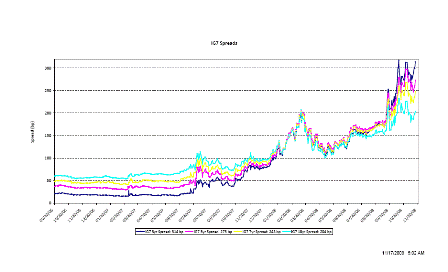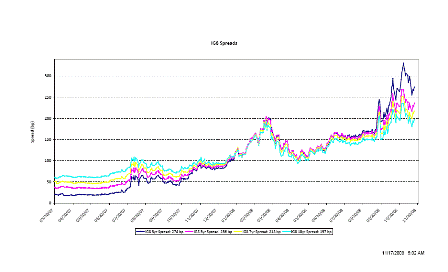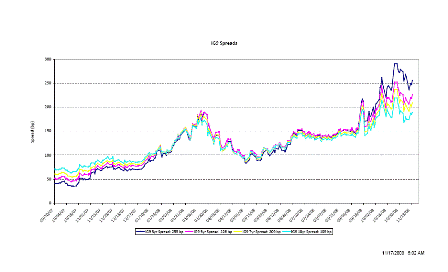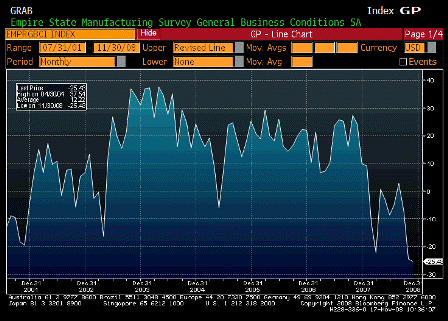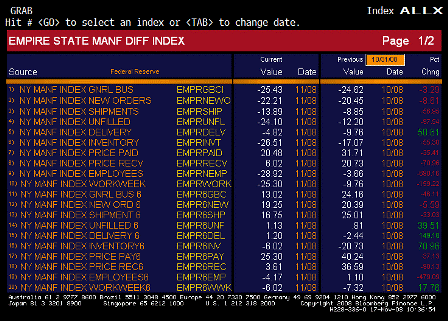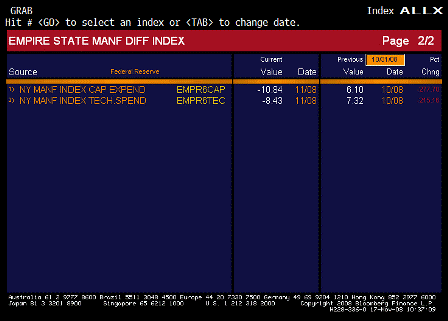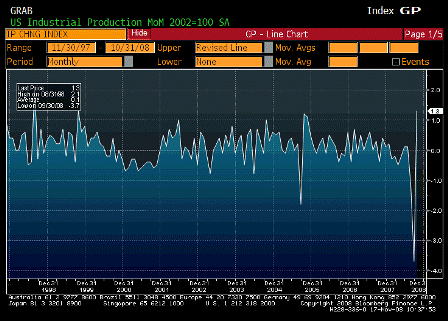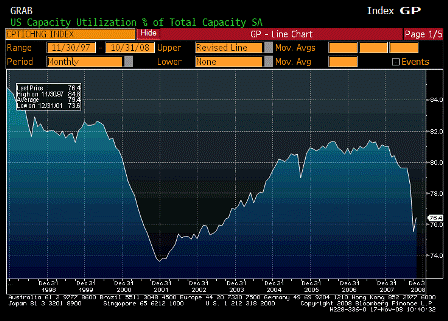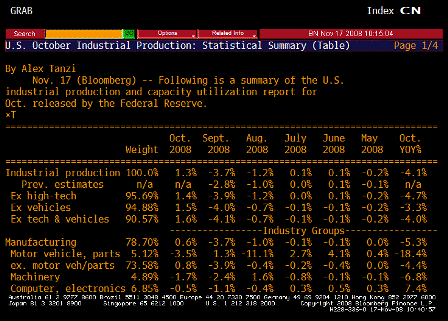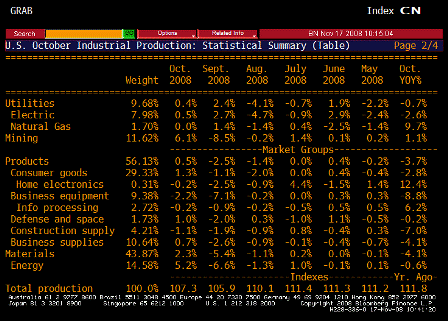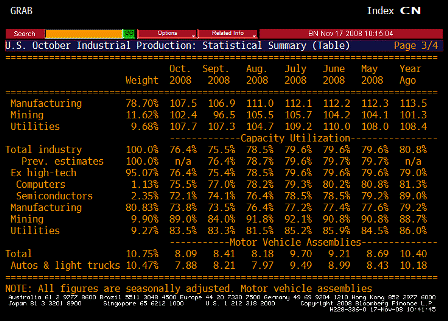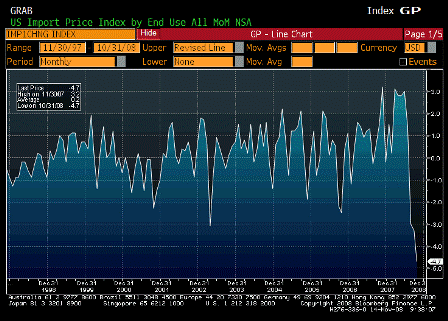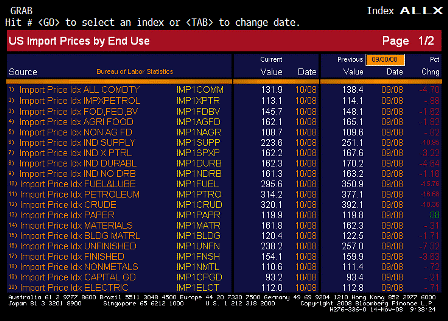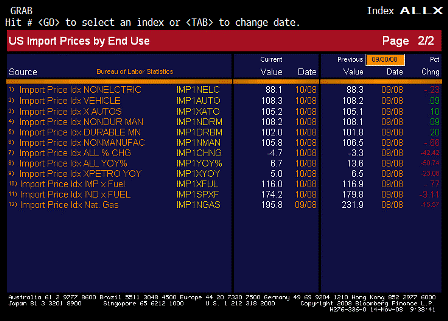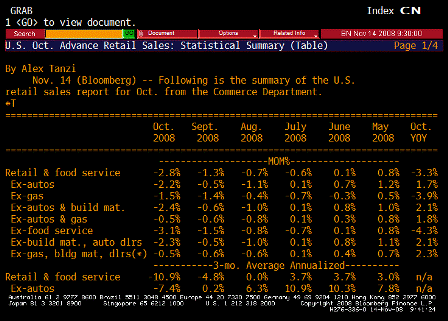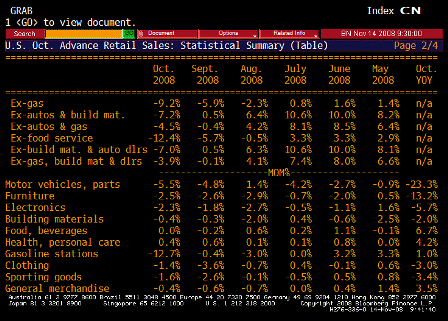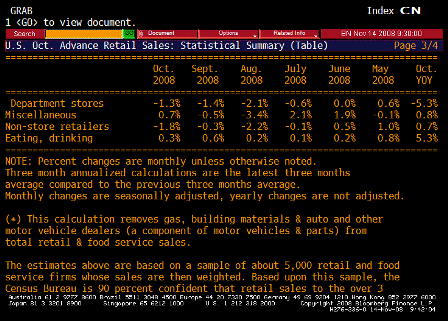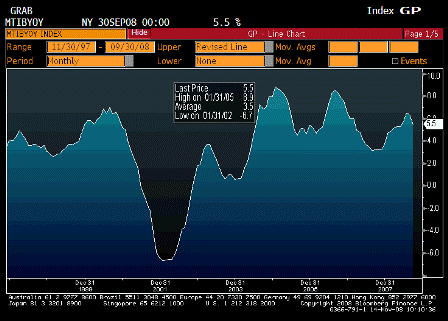[Skip to the end]
(email exchange)
>
> On Wed, Nov 12, 2008 at 11:37 PM, Morris wrote:
>
> The Muni stuff is more interesting… See the data…if the USA loses AAA.,
> what does that make states with Budget Gaps of over 10pct of GDP and
> NO capability for a funding mechanism to print money????
>
Dependent on the US government/banks for credit, like the rest of us- (we may now need both a payroll tax holiday and a trillion or so of revenue sharing for the states).
And restoring growth and employment is no big deal, actually, if government sustains demand at reasonable levels, which it always, readily, can do.
We sent men to the moon 40 years ago, cram mind boggling technology into cell phones, do robotic surgery, and don’t understand how a simple spreadsheet called the monetary system works.
Remarkable!
The United States may be on course to lose its ‘AAA’ rating due to the large amount of debt it has accumulated, according to Martin Hennecke, senior manager of private clients at Tyche.
Yes, that may happen, as ratings agencies have no clue how it all actually works.
“The U.S. might really have to look at a default on the bankruptcy reorganization of the present financial system” and the bankruptcy of the government is not out of the realm of possibility, Hennecke said.
With government spending not constrained by revenue, any such event would be an unnecessary political response.
“In the United States there is already a funding crisis,
Not for government.
And a close look at actual monetary operations shows government best thought of as spending first and then borrowing or collecting taxes. Any constraints are necessarily self imposed (debt ceilings, no overdraft at Fed provisions, paygo policy).
and they will have to sell a lot more bonds next year to fund the bailout packages that have already been signed off,” Hennecke told CNBC.
No, the Fed government sells bonds after they spend, not in order to spend.
In order to solve or stem the economic slowdown, Hennecke suggested the US would have to radically reduce spending across all sectors and recall all its troops from around the world.
No, to stem the slowdown the US has to increase its deficit- increase spending and/or cut taxes.
Fortunately, this is already underway via the ‘automatic stabilizers’ as tax revenue slows and transfer payments increase.
Unfortunately we still don’t have the good sense to do this proactively.
>
> On Thu, Nov 13, 2008 at 6:53 AM, Morris wrote:
>
> Your theories are quite interesting- why wouldn’t the G20 announce
> this sort of massive WW stimulus package of say, 10 trillion dollars to
> restart all local economies?
>
They might.
Two points:
1. Deficits need to be ongoing to sustain the financial equity that supports credit structures. It’s not just a matter of ‘jump starting’ though that certainly doesn’t hurt.
We got into this mess by letting deficits get too low. We have yet to recover from the surplus years of the late 90’s that reduced private sector financial equity by maybe a trillion USD, back when that was a lot of money.
2. Any nation is better off by doing it unilaterally in sufficient quantity to restore output and employment. The last thing anyone needs is foreign consumers competing for scarce resources.
[top]

